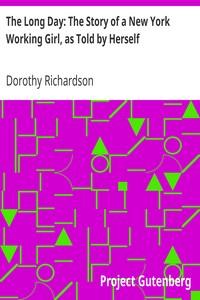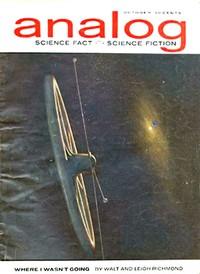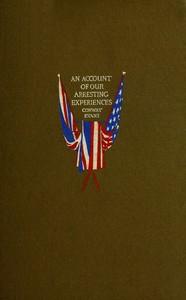Read this ebook for free! No credit card needed, absolutely nothing to pay.
Words: 65783 in 33 pages
This is an ebook sharing website. You can read the uploaded ebooks for free here. No credit cards needed, nothing to pay. If you want to own a digital copy of the ebook, or want to read offline with your favorite ebook-reader, then you can choose to buy and download the ebook.


: The Long Day: The Story of a New York Working Girl as Told by Herself by Richardson Dorothy - Women Employment New York (State) New York History Sources
THE PINK SHOP
Madame Coralie was a magician. Emulating the dark-browed Medea, she restored the aged to their pristine youth; but her methods were more painless and less thorough than those of the lady from Colchis. That enchantress chopped up the senile who sought her aid, and boiled their fragments in a cauldron, so that they reappeared juvenile to the marrow of their bones; whereas her modern representative dealt only with externals, and painted rather than rebuilt the ruined house of life. Moreover, Medea exercised her arts on men, while Madame Coralie attended exclusively to women.
Numberless elderly dames, both in Society and out of it, owed their surprising looks of youth and beauty to the mistress of the Turkish Shop. It was situated in a mean little lane, leading from the High Street, Kensington, to nowhere in particular; and was, to the faded belles of Mayfair, a veritable fountain of youth, hidden in a shady corner. Ladies entered the shop old, and came out young; they left their broughams ugly, and returned beautiful.
The shop was a pink-painted building which faced the blank walls of other houses on the opposite side of the crooked lane, so that it could not be overlooked by any Peeping Tom. No spy could remark who went into the beauty factory or who came out of it, which was highly convenient, since Madame Coralie's clients conducted their visits with great secrecy for obvious reasons. The remaining dwellings in the lane were inhabited by poor people, who found their time sufficiently occupied in earning a bare livelihood, and who, consequently, paid no attention to the concerns of this particular neighbourhood. The lane formed a short cut between the High Street and the back portions of Kensington Palace, but few people passed through it, preferring to go round by the Gardens. A more central or a more retiring spot for the peculiar business of the shop could scarcely have been found; and this modest seclusion had much to do with Madame Coralie's success. Her customers usually came in broughams, motor or horse, and, as a rule, at nightfall, when few people were about. If the restorative treatment required time--which it frequently did--the comfortable bedrooms on the first floor could be occupied, and generally were, at a high rate of payment. Madame Coralie's clients declared unanimously that she was a true daughter of the horse-leech; but, however loudly they objected to her charges, they rarely refused to pay them. If they did, the miracle of rejuvenation did not transpire.
Although coloured a bright pink, the shop really presented a demure appearance, as if unwilling to thrust itself into notice. Clients sometimes suggested that it should be painted as grey as a warship, since that unobtrusive hue was more in keeping with its necessary secrecy; but Madame Coralie held--and not unreasonably--that the flamboyant front was an excellent clue to the whereabouts of her business premises. Any lady told by a friend to go to the pink shop in Walpole Lane had no difficulty in finding her destination. The house, with its glaring tint, looked like a single peony in a colourless winter field, and just hinted sufficient publicity to lure customers into its perfumed seclusion. To womankind it was as a candle to many moths, and they all flocked round it with eagerness. And to do Madame Coralie justice, none of the moths were ever burnt, or even singed--she knew her business too well to risk any catastrophe which might attract the attention of Scotland Yard.
The ground floor of the building, decorated in a picturesque Saracenic fashion, and draped with oddly-patterned Eastern hangings, looked very much like an ordinary drawing-room, though somewhat more artistic and striking. Its polished floor was strewn with Persian praying-mats, while both ceiling and walls were painted in vivid colours with arabesque fancies, interspersed with poetic sentences from the poems of Sadi, Hafiz, and Omar Khayyam, written in flowery Turkish script. Broad divans of pink silk filled in various alcoves, masked by pierced horse-shoe arches of thin white-painted wood. In the centre bubbled a tiny fountain from a basin of snowy marble, and round this were Turkish stools of black wood, inlaid with mother-of-pearl, convenient to small tables adorned with ivory. The broad, low windows looking out on to the lane were hidden by fluted curtains of pink silk, interwoven with silver thread, and the light filtering through these being somewhat dim, even at noon, artificial illumination was supplied by many Moorish lamps fed with perfumed oil.
The whole shop reeked with scent, so that the atmosphere was heavy, sensuous and stupefying. Stepping through the street door--plain without, and elaborately carved within--Madame Coralie's customers at once left foggy, prosaic England for the allurements of the Near East; and in this secret chamber they found those rich suggestions of the Orient which awakened the latent longing for luxury common to all women.
And the costumes of Madame Coralie and her four assistants were in complete keeping with these surroundings--so characteristic of a Pasha's harem. They wore Turkish trousers, Turkish slippers and jackets, and voluminous Turkish veils; but the mistress alone assumed the yashmak--that well-known Eastern covering for the face, which reveals only the eyes, and accentuates the brilliancy of the same. No one had ever seen Madame Coralie without this concealment, and not even when alone with her quartette of young girls did she lay it aside. Consequently, it is impossible to say what her looks were like. Only two hard, piercing black eyes were visible, and, staring in an unwinking manner above the yashmak, they looked as sinister as those of an octopus. At least, one of Madame's overcharged customers said as much when the bill was presented, and it is probable that she was correct in her description. The fat little woman with the shapeless figure and deft fingers, and the cajoling tongue, belied by the hard eyes, was a veritable octopus, so far as money was concerned. She gathered in everything and gave out nothing. Even her assistants were not paid; for she lodged and boarded them, and taught them her doubtful trade, in lieu of giving wages.
These same assistants--four pretty, fresh and charming girls--were peculiar, to say the least of it. They bore Eastern names, to match their garb and the shop; but only the eldest of them--fancifully called Badoura--was in full possession of the five senses appertaining to humanity. Zobeide was adder-deaf, Peri Banou could not speak, and Parizade's beautiful blue eyes were sightless. Why Madame Coralie should have chosen these defective beings to attend on her customers was a mystery to all. But there was method in the old woman's apparent madness; for each of the trio, lacking a single sense, had more or less developed the remaining ones to unusual perfection. The blind Parizade possessed a marvellously deft touch, and her olfactory nerves were so keen as to cause her positive pain. Dumb Peri Banou had eyes like those of a lynx, and could spy out wrinkles and flaws and spots and grey hairs in a way which no other woman could have done; while Zobeide's deafness was more than compensated by her instinct for colouring complexions, and her faultless judgment in blending and preparing the various herbs, drugs and spices which combined to form those wares Madame Coralie's customers so eagerly purchased.
Badoura overlooked the three girls when Madame was absent, and being in full possession of her senses was extremely clever, diplomatic and managing. She attended mainly to the shop, while Parizade massaged wrinkled faces and kneaded figures into shape. Of the other two girls--Zobeide tinted wan cheeks, burnished drab hair, and pencilled delicate eyebrows, leaving Peri Banou to diagnose fresh cases, to point out defects, make suggestions, and put the final touches to renovated beauty. These four girls, under the able superintendence of Madame, could give a bulky matron the shape of Hebe, and could change the yellow of an unpleasant complexion to the rosy hues of dawn. The weary, worn women who passed through their hands said good-bye to them--with many thanks--as sprightly, blooming girls, with at least ten or twenty years taken from their ages. No wonder Madame Coralie was adored as Medea, and was looked upon by Society dames as their best and dearest friend, with the emphasis on the second adjective.
Madame Coralie boasted that no woman, not even the plainest, need despair while the wonder-shop--as some called it--was in existence; but it must be confessed that she found it sometimes difficult to work the expected miracle. Nature had done her worst with some customers, and no artificial aids could improve them, while others had left the renovative process too late, and there remained only unpromising material out of which to reconstruct the youthful past. Lady Branwin, for instance--really, it was impossible to do anything with Lady Branwin. When she came one June evening at five o'clock to the Turkish Shop, its owner told her so in the rude, bullying manner of a despot, who knows that her victim cannot object. Madame Coralie only assumed her cajoling voice and manner when her customers were insolent in a well-bred way--to the meek, she spoke like the skipper of a tramp with a Dago crew.
"I can't do anything for you," said Madame Coralie, bluntly; "you never had a good figure, or even the makings of one. All the massage and stays and dieting in the world can never improve it into anything decent."
Free books android app tbrJar TBR JAR Read Free books online gutenberg
More posts by @FreeBooks

: Where I Wasn't Going by Richmond Leigh Richmond Walt Schoenherr John Illustrator - Science fiction; Space stations Fiction


: An Account of Our Arresting Experiences by Evans Conway - World War 1914-1918 Personal narratives American






